Why Islam is being prioritized by converts?
Islam is the second-largest religious group in the world. It entails about 1.8 billion followers, or more than 24% of the world's population. Nowadays, many studies are proving that Islam is the fastest-growing religion in the world and may become the world’s largest religious group by the second half of this century. The main cause behind this growth is the massive number of conversions to Islam, rather than any further religious groups or communities.
Conversion to Islam is a straightforward process in which a non-Muslim accepts a new religious identity with no official registration by pronouncing ‘shahadah' and adopting new beliefs and behaviours. He learns how to live as a Muslim by practicing the five pillars of Islam. Converts are emancipating their physical bodies from the servitude of the whims and fancies of exuberant lifestyles. When they submit to God, they receive quiet and inner peace, and they achieve a sense of tranquillity.
What are the major reasons behind these conversions?
The doctrine of Islam is very straightforward and rational, and the majority of readers agree that this could be the primary explanation for the large number of conversions to Islam, because there are no any unclarified ideas in divinity. Islamic concepts regarding The God Allah and Prophet Muhammed [SAW] are merely capturing the attention of intellectuals with their views. We could read discrimination in church among the followers based on race and it could be counted as a reason for the conversion of many cross-believers to Islam. There is a dominant statement in Islam: "No race, gender, or social status is better than the others; all are based on one’s actions and intentions". Considering this, in Islam, there can’t be any discrimination among the followers regarding their race, gender, or social status. This approach also played a protagonist role in the surging numbers of newcomers.
Chaotic lifestyle of the public
Today’s society is disintegrating because of a lack of discipline, especially in city life. A key part of the society who maintain the luxurious lifestyle, are gradually becoming the most stressed and mentally weakened part of society, as some countries made Euthanasia (painless killing of a person who is suffering from an incurable disease) legal. The tedious lifestyles gained through getting an extreme level of cheerfulness and freedom without any barriers led them to be sufferers of an incurable mental disease, and the next step towards them is only to answer death.
Through the disciplined lifestyle of Islam, it seems to hold out the promise of helping them get their lives back in order again. As a result, these reverts maintain a disciplined form of living and have a particular order to their day-to-day routines. Islam will instruct a number of limits throughout the life of a Muslim, and they will have daily schedules to be performed. It is upon them to practice their scheduled obligatory actions on time. Thus, the structured and ordered lifestyle of a Muslim assists him in being more creative and helpful to himself.
Exaggerations of the media coverage
Approaches of media coverage against Islam also play a great role in raising the number of newcomers to Islam. Because they are exposing Islam as a terrific religion with some examples like the incident of 9/11 or any other subtle activities of some minority groups within the Islam. Meanwhile, the readers will browse about Islam for further information, but to their surprise, many will find peace and beauty in Islam, which will lead them to the idea of conversion. Furthermore, a number of converts are saying that some Muslim-named personalities are curtailing its broad concepts through their unjustified activities. But when a man reads about the Prophet Muhammed [SAW], he can’t approach Islam in such a way and will tolerate all other religious groups and their followers by the way how prophet Muhammed [SAW] treated them.
Charles Vincent was a Catholic Christian who lived in California. Now he maintains his life as a practicing Muslim and a performing believer. He was admitted to a hospital when the bombs were blown up in the World Trade Centre. He had known about the horrific incident that happened near his home town by the news and channel discussions. After clearing the hospital case, he could see the smoke-filled bulwarks of the trade centre and thought about the activities of Muslims and why they are doing such terrific things those are harmful for the co-existence of the entire pluralistic society. Consequent to this, he intended to read about Islam, so he bought a copy of the holy Qur’an to rectify the prejudices and stereotypes that existed in the community. But he was getting attracted to the words and declarations that were expressed in the holy Quran. It created some doubtful questions about Christianity for him. After completion of the reading, he certified that this is not only a book with common behaviours, but it also has some specific characteristics and features. This is not a handwritten copy of mankind; it is the words of another power, which may be the words of God. This was the way that he cleared his path to Islam.
Some Individuals about their conversion
Kareem Abdul Jabbar, a retired basketball player in America, states that he got attracted to Islam due to its existing equity and equality. When he was an African-American Christian, he faced several exploitations regarding his race. Also, the words of Malcolm X were thoroughly subjugating his thoughts and were internally instructing him to do something for the emancipation from his enslavement. Another convert, Joram Van Klaveren, the former member of the Great Wilders’ far-right Dutch party, was answering a questionnaire that he was getting ready to write an anti-Islam book and had to follow Islamic texts and works as prior references to encompass the views against Islam. But works like ‘Muhammed’ by Martin Lings formed some variations on him, plucked his hostility towards Islam and Muslims, which gradually shaped him as a practicing Muslim.
Najmal Babu (a former naxal leader and social activist in Kerala) became a Muslim. Behind his conversion there had a number of political and personal implications. He had engaged in interactions with diverse Muslim communities while continuing to study and learn about Islam. In the backdrop of the growth of right-wing Hindutva forces, particularly in the wake of the Gujarat genocide and the destruction of Babari Masjid, he was clear that his conversion constituted a powerful political statement. One of the main things that influenced him to stick with Islam until the end of his life was the Gujarat Genocide, the destruction of Babari Masjid, and the continuous dominance upon Islam, Muslims, and Muslim communities.
Lucy Bushill Mathews, a convert and chief operating officer of the National Zakat Foundation UK, portrays the background story of her conversion through her own book, Welcome to Islam: A Convert’s Tale. She had expressed, the messages in Christianity are much more confusing. She had said that “I interacted with a lot of people, read a lot of books, and went to different talks. It became very clear for me that Islam is a holistic message for humanity, regarding the central concept tawheed which the entire adherence of a Muslim lays”. There an American Muslim interviewed in a recent book (Neighbours: Muslims in North America, Elias Mallon, Friendship Press, 1989) and gave the following reasons when asked why African-Americans are turning to Islam. The first one was dependent on the racism in the churches among believers, and he also stated that “The discrimination that we feel makes Islam attractive to us because it's a way of rejecting the culture that won't have us".
Islam as a deliverance for low caste people
The discrimination and inequality among the adherents of a religion can easily make them doubtful of about their beliefs. The caste system in India cleared the path for many low-caste people to convert to Islam. They discovered Islam to be the only religion that considers all followers to be equal and gathers everyone in the same place regardless of class differences. Many people chose Islam to achieve the bare minimum of human consideration, while the rest sought equality with their neighbours and social position. An article in 'The New York Times' describes a man named Dorai Danapalam who embraced Islam as a means of economic advancement. He was a rickshaw driver who understood that embracing Islam shall remove all societal restrictions that he and his family challenged. This article also mentions a dozen villages and a few thousand Indians who have announced their intention to abandon Hinduism in favour of Islam.
Numerous groups have also converted to Islam in order to preserve their privileges and entitlements. The 'pasmanda Muslims' are a group of converted Muslims from lower social groups who live in India. The term pasmanda refers to ‘the outcast’. It was founded in 1998 on the initiative of Ali Anwar Ansari to preserve the rights and privileges that were restricted for Dalit Muslims and liberated for other underprivileged communities.
In conclusion, these day-to-day conversions are taking Islam to the peak of most followed religious groups. It may partially affect the other most followed religions and compel them to rethink and reform their beliefs; perhaps these conversions will enlighten the ideas of other social groups. We can take a deep breath to attend the revolutionary changes that are to be held in the upcoming decades.
Endnotes
- Bernhard, B. (2006). White Muslim: From LA to New York. Melville House Publishing.
- Mathews, L. B. (2008). Welcome to Islam: A convert's tale. Continuum.
- Abdul-Jabbar, K. (2015, March 29). Why I converted to Islam. Al Jazeera America.
- Kaufman, M. T. (1981, August 14). Lowly Hindus in India see Islam as their salvation. The New York Times.
- Lipka, M. (2017, August 9). Muslims and Islam: Key findings in the U.S. and around the world. Pew Research Center.
- Van Klaveren, J. (n.d.). [Personal interview with Joram van Klaveren]. Towards Eternity YouTube channel.
- Mallon, E. (1989). Neighbours: Muslims in North America. Friendship Press.
About the author
Amal Ihsan is a degree scholar at Darul Huda Islamic University. He is studying in the Department of Aqeeda and Philosophy.
Disclaimer
The views expressed in this article are the author’s own and do not necessarily mirror Islamonweb’s editorial stance.

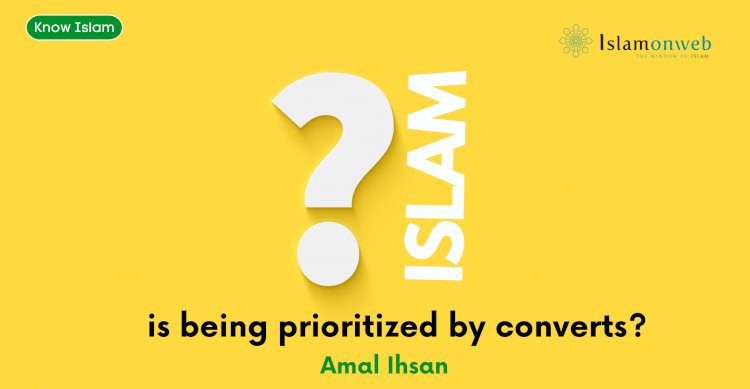


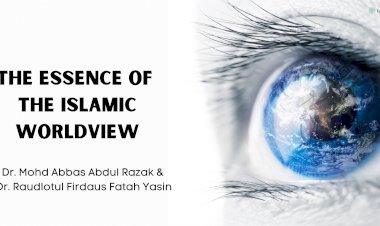
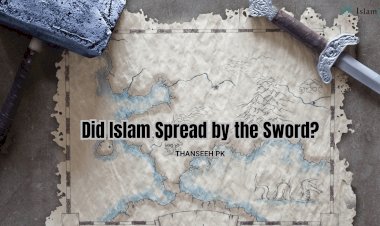
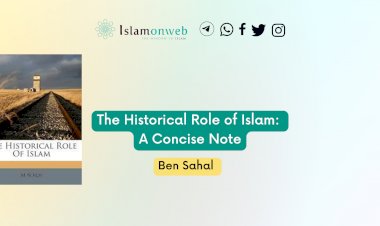
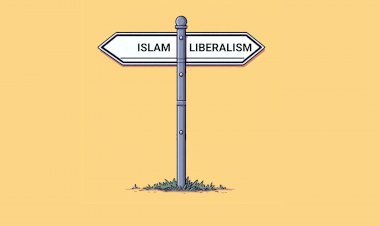
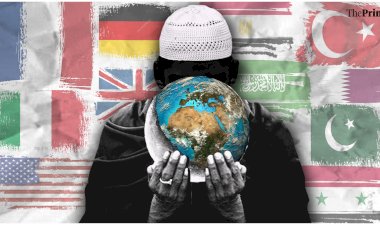
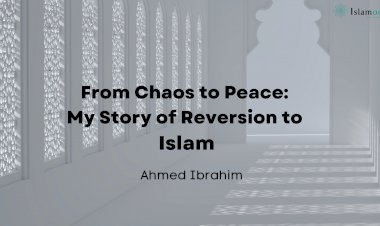














Leave A Comment